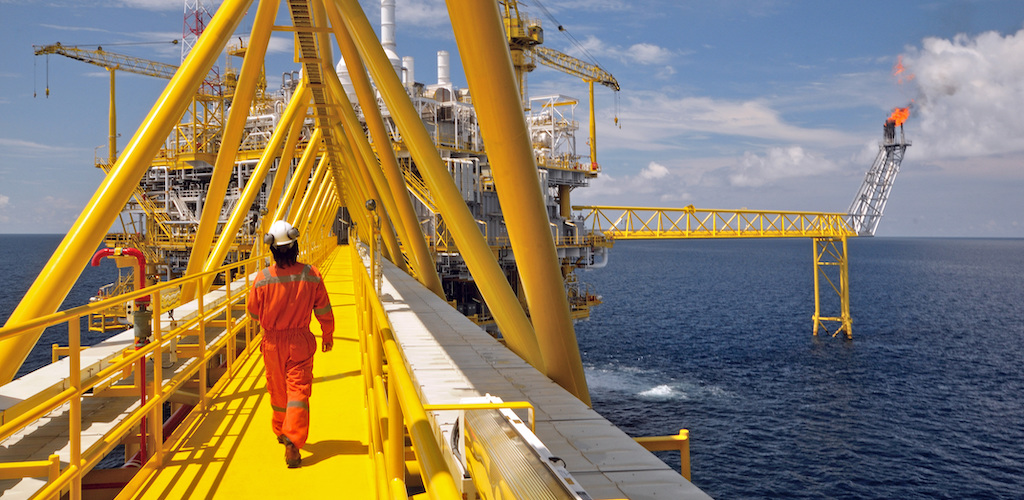Billion-dollar EPC Contracts Will Bolster Production

By Malcolm Ramsay
Oil prices may be about to retreat, following months of tight supply and soaring prices, as falling costs and a raft of new projects boost supply and improve outlook for breakbulk demand across the sector.
Disruption across supply chains, coupled with shortfall in crude stocks, last month led many analysts to issue triple-digit per barrel price forecasts, but action by oil producers along with a flurry of major new project announcements now looks set to subdue pressure.
“The multiyear record high prices that we saw lately could already have been the ceiling of this rally, as the market will transition to healthier balances in coming months,” said Louise Dickson, senior oil markets analyst at Rystad Energy, adding that “growing supply in the U.S. and promised future incremental increases from OPEC+ threaten to halt the 17-month streak of the market being in a supply deficit as demand ticks back.”
Rystad estimates that U.S. supply has climbed more than 500,000 barrels-per-day (bpd) this year and could gain another 700,000 bpd by the end of 2022. OPEC+ is meanwhile expected to bring back more than 2.7 million bpd between the end of 2021 and end of 2022, with the Middle East fast emerging as a focus for new spending.
ADNOC Awards Dalma Contracts
Alongside improvements in the global supply situation, a growing commitment to develop new oil and gas projects is helping to boost the price outlook and drive project cargo demand. Energy firm Abu Dhabi National Oil Co., or ADNOC, has been one of the largest spenders, announcing the award of two major engineering, procurement and construction, or EPC, contracts, valued at US$1.46 billion, this week.
These contracts cover construction of significant new infrastructure at the Dalma Gas Development Project and were awarded to National Petroleum Construction Co., or NPCC, and a joint venture between Spanish firm Técnicas Reunidas and local developer TargetEngineering.
Yaser Saeed Almazrouei, executive director at ADNOC Upstream, sees the project as central to the “gas self-sufficiency goal of the UAE,” and a major driver for breakbulk growth. “The award of the Dalma EPC contracts as well as ongoing artificial island construction and development drilling underscore the progress of the Ghasha mega development,” he said.
The Ghasha mega project is the world’s largest offshore sour gas development and will include development of multiple artificial islands. Under the most recent contracts, NPCC will receive US$514 million for development of four offshore wellhead towers, pipelines and umbilicals in Hair Dalma, Satah, and Bu Haseer fields. The Técnicas Reunidas and Target joint venture will receive US$950 million for construction of gas conditioning facilities, compression and associated utilities on Arzanah Island.
Following its contract win, NPCC has also signed a strategic MoU with construction group Petrojet to explore further EPC opportunities in the region. Yasser Zaghloul, CEO of National Marine Dredging, the parent group of NPCC said the MoU underlined “the confidence of the global energy sector” and that it would “build our geographic footprint and add further value to our stakeholders and partners.”
Iraqi Potential
Further support for project cargo prospects in the Middle East has also been provided with authorization for the recently resuscitated Iraq National Oil Co., or INOC, to begin direct negotiations with U.S. oil giant Chevron.
If successful, it could see the firms partner to develop the 4.36 billion-barrel Nasiriyah oilfield, a potentially significant source of breakbulk activity over the longer term. The country’s oil resources have been vastly underutilized in recent decades, due to the long history of warfare and political volatility. But the latest moves suggest that western energy companies, EPC firms and breakbulk operators may soon be part of a significant change.
French firm TotalEnergies recently signed an agreement with the Iraqi government to invest US$27 billion in four energy projects in the country, with major agreements covering new develpoment in the Basra region.
“These agreements signal our return through the front door to Iraq, the country where our Company was born in 1924. Our ambition is to assist Iraq in building a more sustainable future,” said Patrick Pouyanné, CEO of TotalEnergies, adding that the firm was in a "unique position" to leverage growth in the Middle East both in oil and gas and new renewable projects.
Major projects under consideration by the firm include construction of a new gas gathering network and treatment, a three-gigawatt power generation project, a large-scale seawater treatment unit, and construction and operation of a one-gigawatt photovoltaic power plant.
Supply Issues to Mid-2022
For the project cargo sector, the balance between high oil prices and sustainable supply will likely remain a key concern well into next year, with Rystad predicting that many of the current supply shortages will disappear by mid-2022.
With emphasis turning to new supply in 2022, Iraq and the wider Middle East region appear the focus for much spending. Espen Erlingsen, head of upstream research at Rystad Energy, noted that “Onshore Middle East is the cheapest source of new production with an average breakeven price of around $32 per barrel. This is also the segment with one of the largest resource potentials.”
Despite this positive outlook, numerous downside risks remains with much investment still been deferred due to uncertainty around the Covid pandemic. A fourth wave of Covid-19 cases is hitting Europe, triggering many governments to take action and reinstate masks mandates and lockdowns, and adding a potential roadblock for oil demand.
